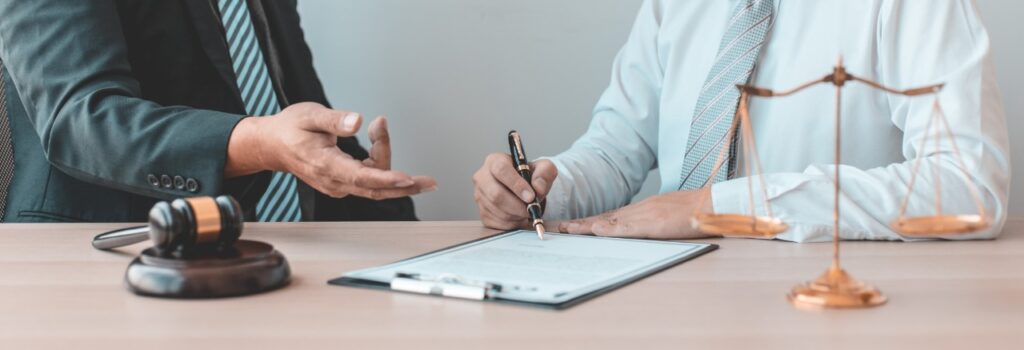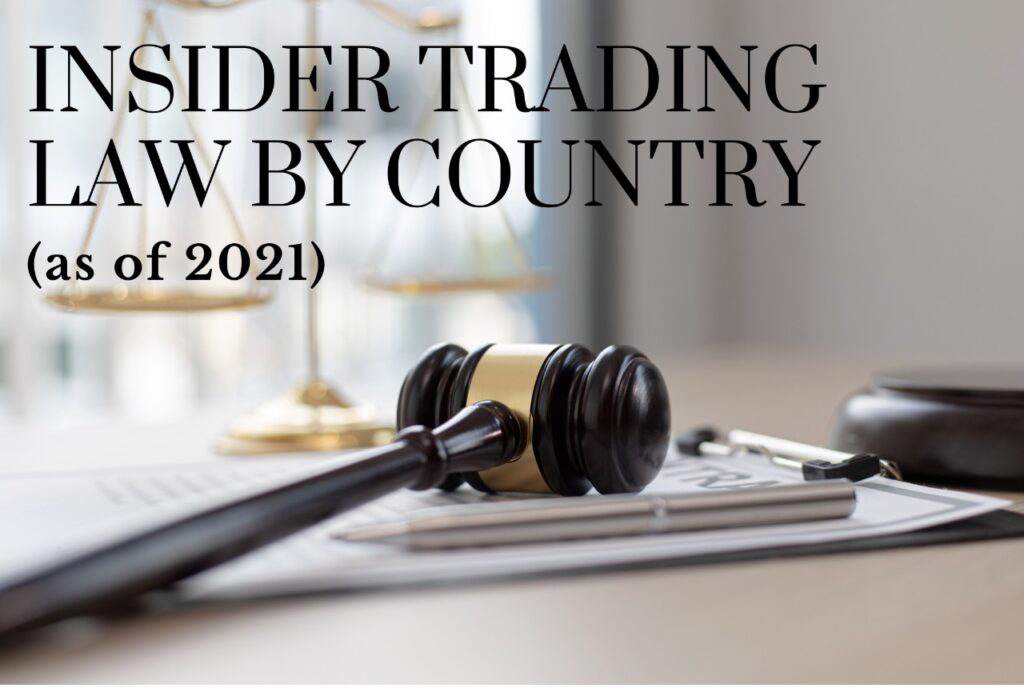The most recent publicly available study on insider trading, published in 2024 by Cline, Williamson and Xiong, collects data on insider trading regulation around the world. It analyzes 163 countries with stock markets, 30 of which have no insider trading regulations at all. We decided to divide the world into four groups based on the stringency of insider trading laws.
We also need to point out that insider trading laws apply to the stock market, not the investor’s location. So, if you are in a country where there are no or lax insider trading regulations, and you are trading U.S. stocks, then U.S. law applies. Long story short, regulators may not be able to reach you, but they can freeze your money.
The Countries With No or Minimal Insider Trading Regulations
- Afghanistan
- Belize
- Benin
- Burkina Faso
- Cameroon
- Central African Rep.
- Chad
- Dem. Rep. of the Congo
- El Salvador
- Gabon
- Guatemala
- Guinea Bissau
- Haiti
- Honduras
- Ivory Coast
- Libya
- Mali
- Mozambique
- Niger
- Puerto Rico
- Senegal
- Sierra Leone
- Sudan
- Suriname
- Tajikistan
- Togo
- Turkmenistan
- Uzbekistan
- Venezuela
Related: Illegal insider trading is the act of making financial decisions based on substantial, nonpublic information. Insider trading is forbidden since it offers the individual with the information an unfair advantage. Continue reading to learn more about illegal insider trading.
The Countries With Lax Insider Trading Regulations
- Armenia
- Bhutan
- Bolivia
- Kyrgyzstan
- Laos
- Lithuania
- Macedonia
- Malawi
- Moldova
- Mongolia
- Palestine
- Turkey
- United Arab Emirates
- Uruguay
Learn about some of the most noteworthy incidents of when people traded on information that the broader public lacked.
The Countries Where There is an Insider Trading Law, the Punishment Consists Mainly of Fines.

- Albania
- Algeria
- Azerbaijan
- Bahrain
- Bangladesh
- Barbados
- Belarus
- Bermuda
- Bosnia and Herzegovina
- Botswana
- Bulgaria
- Cambodia
- Cape Verde
- Cayman Islands
- Chile
- Colombia
- Costa Rica
- Croatia
- Cyprus
- Czech Republic
- Denmark
- Dominican Republic
- Ecuador
- Egypt
- Estonia
- Finland
- Ghana
- Greece
- Guyana
- Hungary
- Iceland
- Indonesia
- Iraq
- Ireland
- Isle of Man
- Italy
- Kazakhstan
- Latvia
- Luxembourg
- Malaysia
- Maldives
- Mexico
- Monaco
- Montenegro
- Myanmar
- Namibia
- Nepal
- Netherlands
- New Zealand
- Oman
- Panama
- Papua New Guinea
- Paraguay
- Peru
- Philippines
- Poland
- Portugal
- Qatar
- Romania
- Russia
- Rwanda
- Saudi Arabia
- Serbia
- Singapore
- Slovakia
- Slovenia
- South Africa
- Sri Lanka
- Swaziland
- Sweden
- Syria
- Taiwan
- Thailand
- Trinidad and Tobago
- Tunisia
- Ukraine
- Vietnam
- Zimbabwe
Discover how the SEC uses data analysis to detect suspicious patterns over time, such as successful insider trading across multiple securities.
The Countries Where Violation of Insider Trading Law is a Criminal Offense (Illegal Insider Trading Can Result in Severe Civil and Criminal Penalties)
- Antigua and Barbuda
- Argentina
- Australia
- Austria
- Bahamas
- Belgium
- Brazil
- Canada
- China
- Dominica
- France
- Fiji
- Germany
- Grenada
- Hong Kong
- India
- Iran
- Israel
- Jamaica
- Japan
- Jordan
- Kenya
- Kuwait
- Lebanon
- Malta
- Mauritius
- Morocco
- Nicaragua
- Nigeria
- Norway
- Pakistan
- Seychelles
- South Korea
- Spain
- Switzerland
- Tanzania
- Uganda
- United Kingdom
- United States
How Do These Laws Differ?
In the United States, under the Insider Trading Prohibition Act 2021, it is illegal for a person to make use of or convey material nonpublic information in securities trading. The Act also provides for civil penalties for insider trading and authorizes private suits.
For the purposes of the Financial Services Act of 2021, an insider is defined more broadly than it is under US securities laws and includes those who, among other things, have access to inside knowledge while performing their professional responsibilities.
The UK approach differs from the US in that it does not call for a fiduciary or fiduciary-like relationship, a duty of trust or confidence, or any other type of obligation between the source of the information and the recipient of it.
Different enforcement strategies are used by Canadian and American securities market regulators. Canadian securities law is primarily governed by territorial or provincial laws, which are carried out by the local securities commissions. The Federal Securities and Exchange Commission (SEC), in contrast, is the primary force behind the development of securities law in the United States, with state regulators playing a supporting role.
While insider trading is expressly prohibited by law in Canada, it is only nominally prohibited in the United States and is based on the law against fraud.
It might be claimed that, at least historically, insider trading has been more vigorously and effectively executed in the US than in the European Union. Insider trading has been controlled in the European Union considerably more recently than in the US. There have been a variety of explanations put out for this discrepancy in enforcement attitudes, with a particular emphasis on the resources regulators have allocated to combating this behaviour as well as varying cultural attitudes toward insiders.
What Are the Penalties for Insider Trading?
Criminal Penalties
The maximum fine for securities fraud in the US is $25,000,000 for corporations and other legal bodies, whereas the maximum fine for an individual is $5,000,000. A person who behaves in a way that suggests they are unsuitable for office may get a penalty of up to 20 years imprisonment as well as a ban from serving as a director or officer of a publicly traded company.
A person found guilty of insider dealing in the UK is subject to a fine, up to six months in prison, or both, upon summary conviction. Anyone found guilty of insider trading faces up to a seven-year prison sentence, a fine, or both upon conviction on an indictment.
Insider trading and market abuse charges are punishable by law in France in the following ways:
Five years in jail and a fine of EUR 100 million are the penalties for individuals under Article L. 465-1 of the CMF, the fine can be enhanced to a maximum of 10 times the profit made from the offence and must at least be equal to the profit made, The same punishments apply to attempted offences.
Legal entities (Article L465-3-5 of the CMF): a fine of 500 million euros, the fine may be increased by up to ten times the profit made from the offence, the fine may also be enhanced by up to fifteen percent of the company’s consolidated annual revenue.
Civil Penalties
In the US, a firm could be fined up to $1,000,000 or three times the profit made or loss prevented as a result of the violation if it disregarded the reality that the controlled individual was likely to be involved in the circumstances and commit the insider trading violation and ended in failure to take the necessary steps to stop the actions before they actually occurred. An individual could be subject to fines that are up to three times the revenue generated or loss avoided as a consequence of the illicit transaction. Additionally, a person can be given a restraining order and forced to make good on any gains or losses avoided.
When MAR has been violated, the FCA in the UK has extensive authority, including the following:
Preventing anyone from retaining a management role in a UK investment company, ordering an injunction preventing market abuse, requiring someone to take action to stop market abuse, disgorging profits or losses avoided, preventing a UK firm from engaging in regulated activities, or limiting its ability to do so.
For insider trading and market abuse, the AMF Enforcement Committee has the authority to impose administrative punishments. Depending on the person or legal body that is being punished, administrative sanctions may take the form of fines or disciplinary actions.
The maximum fine is 100 million euros, and it can be increased to up to 10 times the profits generated from the violation. For legal entities, the maximum increase is 15% of their combined annual sales.
Conclusion
Legislators have a fiduciary responsibility to their constituents to enact appropriate laws and refrain from doing so. They should base whatever legislation they create about insider trading on the application of a well-known value system.
When rights have been violated, the offenders should face the consequences. In the majority of situations, there are existing laws in place that forbid the infringement of rights. Where such laws are not already in place, transition economies must pass them. There are already laws in place, or there ought to be situations in which a fiduciary obligation has been broken.
FAQs
Who investigates insider trading?
Insider trading is the subject of investigation for the Securities and Exchange Commission (SEC).
Why should insider trading be legal?
The most common argument for why insider trading should be legal is that it provides investors with the best possible information to make informed decisions.
How much jail time for insider trading?
Criminal securities fraud carries a maximum 20-year jail sentence for an individual.
How much insider ownership is good?
Some believe insider ownership should be at 10%. Others think it is good if insiders own 5% or less. The truth is the relationship between insider ownership and performance is not that straightforward.
Disclaimer: This article and the information contained herein are not intended to be a source of legal advice. We don’t promote any illegal activities such as insider trading or any other crime.

